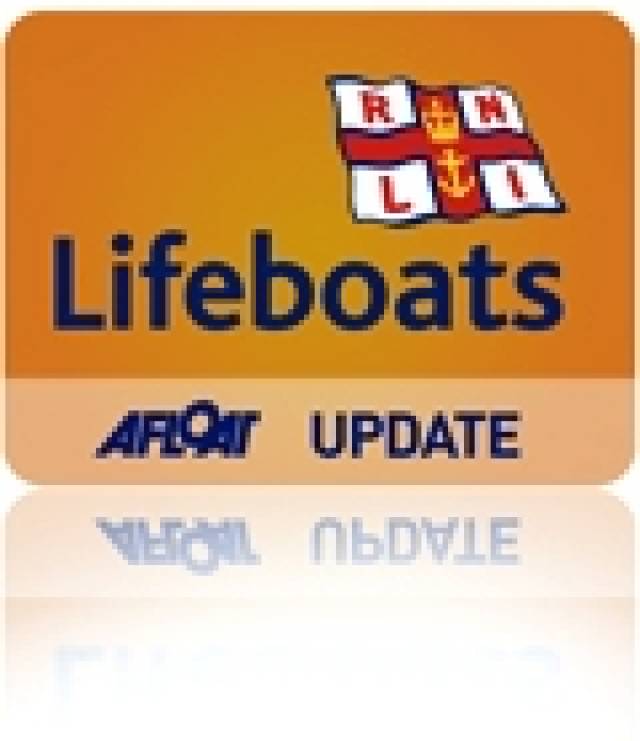#RNLI - The volunteer lifeboat crew at Portaferry RNLI responded to four separate calls in the space of 24 hours between Thursday 29 and Friday 30 May.
The first call was received at 6.07pm on Thursday to help four people on board a small powerboat with engine problems near Church Point in the Strangford Narrows area of Strangford Lough.
Weather at the time was cloudy with good visibility, a calm sea and Force 2 easterly winds. The volunteer crew launched at 6.13pm and were on scene with the two adults and two children onboard the powerboat within three minutes.
By this stage the people onboard the powerboat had managed to re-start their engine and made their way to the pontoons at Strangford. The RNLI crew made sure that everyone onboard the vessel was safely on shore before the volunteer lifeboat crew returned to station at Portaferry.
Not long after, a second call was received at 8.40pm from HM Coastguard requesting the RNLI to investigate a 10-metre yacht that appeared to have slipped its moorings and beached near the old Katherine Quay in Strangford, Co Down.
Once again, the weather was cloudy with good visibility, a calm sea and Force 1 easterly wind. The volunteer crew launched at 8.45pm and were on scene two minutes later, where they found two men on board and helped fix a line to secure the yacht so that it would not drift when the tide rose.
Once the yacht was secured, the lifeboat crew confirmed that the two men were happy to remain onboard while the lifeboat crew returned to station in Portaferry.
The third and final call of the evening was received 9.57pm from two men onboard another 10-metre yacht with engine problems some 10 miles south-east of the Strangford Bar at the mouth of Strangford Lough.
The two men had set out earlier that evening from Portaferry to travel to Peel Harbour in the Isle of Man. The volunteer crew launched at 10.02pm and reached the stricken yacht at 10.35pm.
Once the vessel was located, they put a lifeboat crew member on board and started to tow the vessel and its crew towards Peel Harbour in the Isle of Man, letting the larger all-weather lifeboat from Peel RNLI take over as they approached. The Portaferry crew departed the scene at 11.20pm.
The fourth call was received at 4.50pm on Friday, requesting the volunteer crew to go to the aid of six people, five in canoes and one in a small motorboat, who had got into difficulty just off Church Point.
The RNLI volunteers launched the lifeboat at 4.50pm and arrived at the scene five minutes later. Weather conditions were similar to Thursday, cloudy with good visibility, a calm sea and a Force 1 northerly wind.
On scene, the lifeboat crew discovered that the small motorboat had gone to help five adults in two canoes who were entering the Narrows area of Strangford Lough.
Having secured the two canoes, the motorboat itself started to experience engine problems, resulting in all three craft starting to drift towards the SeaGen tidal power turbine in the Narrows.
The volunteer lifeboat crew intercepted the six people at the Scotsman Rocks South, just south of Strangford, taking all on board the lifeboat, securing the small motorboat and two canoes and bringing all safely into Strangford Marina where they were put ashore.































































